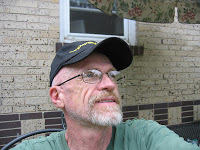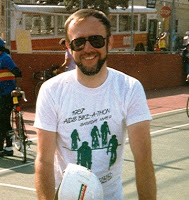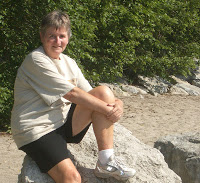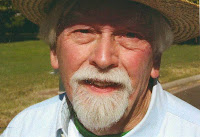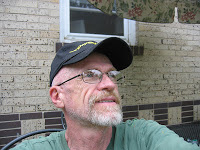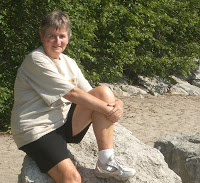Epiphanies are generally associated with religious experiences, but they can occur over nearly any subject, topic, or event. It is not an important distinction whether or not the Divine brings on that flash of insight, or our subconscious mind finally “connects-all-the-dots.” That is to say, the distinction may be important to someone’s world-view and not to someone else’s. The point here is that nearly everyone has experienced an epiphany or flash of insight at some time in their life, from whatever cause.
I once thought that epiphanies were all major events or flashes of insight which would lead a person to change their entire future life, as when Jesus appeared to Saul on the road to Damascus or when the Founding Fathers banded together to form our nation. I have had my share of major epiphanies from life changing to mundane during my time on earth. The most recent I would call a major one, but it only came to me at this point in my life when it is nearly too late to recover from neglecting the whole point, lesson, or message of the epiphany. The major flash of insight, revelation, or brain-connecting-the-dots event was how the little things mean a lot more than we generally believe – until later in life when their influence or impact becomes crystal clear.
In the past couple of weeks, I had my epiphany of the little things in my life that had major impacts over time and affect me until today and beyond. This epiphany was not possible for me to have, understand, and believe until I reached the age where it all makes sense due to hindsight.
The first one I remember is when I received that major spanking when I was 4 or 5 of which I have written about before. That was the time my father spanked me for “playing with my penis” instead of being “disobedient” for not getting dressed. A small mistake on his part, just a little thing, but the result had a tremendous impact on my future. I learned from that experience to keep secrets about anything, but especially penis and nudity related. I don’t fault my parents for this over reaction. They had no idea I was mildly ADD and easily distracted, which was why I wasn’t getting dressed in the first place. At that age, if not before, most kids explore their bodies and that spanking was an over reaction to natural and innocent curiosity and not precocious sexual lust.
The next small thing was being sent to live with my grandparents while my parents went through the divorce process totally unknown to me. Now my feelings at the time were excited when I first went, but at the end of the first summer, I was ready to go home. Somehow, my mother talked me into staying to go to school there. That did not make me happy, but I liked the Cambridge public school better than the Hawthorne Christian School I had been attending in California. The problem occurred when 1½ years later my father arrived during the last week of Christmas vacation. His mistake was to wait until the night before he left before telling me about the divorce. He should have told me immediately when he arrived, so we could grieve together. It was a little thing, but with major consequences. As a result, for the next 53 years I was emotionally incomplete as my brain shut off all negative physical sensations and feelings regarding separations and loss in order to stop my physical and mental pain.
Other little epiphanies I have experienced are not really life changing but more like signposts along the way indicating the right road or providing guidance on current situations. An example of one of these types is when visiting the hospital, the daughter of the man who was ill was talking to me and another couple in the room. Suddenly, I “knew” that she was emotionally charged and needed to vent. So, I held out my arms and she “fell” into them and cried on my shoulder while I hugged her. It was just a small thing, but I remember it as a “it-made-me-happy to comfort-another” thing.
Life is not normally made up of major epiphanies, unless one is a legitimate prophet of the Divine or otherwise visionary. Rather, life is composed of little ordinary events, which can have minor or great impact on our futures. More examples are “Look mommy, I can read this”; “The sunset is beautiful”; “Daddy likes to take me bowling”; “Mommy loves the cards I send her”; “My parents came to watch all my games”; Or “I’m not rich, but I live better than most of the world’s population.”
So, my late in life epiphany is that all the small things in my life taken as a whole from the perspective of senior status, all point to one conclusion, I am loved. Loved by many people and most importantly loved by the Divine. It is still not too late to spread some of that love around to those who really need to feel it. Who knows, maybe my small random acts of kindness will lead to someone else’s epiphany.
© August 2012
About the Author
When united with my mother and stepfather two years later in 1958, I lived first at Emerald Bay and then at South Lake Tahoe, California, graduating from South Tahoe High School in 1966. After three tours of duty with the Air Force, I moved to Denver, Colorado where I lived with my wife and four children until her passing away from complications of breast cancer four days after the 9-11 terrorist attack.
I came out as a gay man in the summer of 2010. I find writing these memories to be therapeutic.
My story blog is TheTahoeBoy.Blogspot.com

